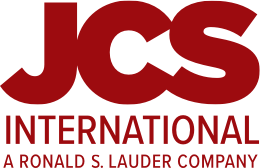Ronald S. Lauder: This terrible place called Auschwitz
Ronald S. Lauder: This terrible place called Auschwitz.
Highlights of Ronald S. Lauder’s address at the commemorative event on the occasion of the 70th anniversary of the liberation of Auschwitz-Birkenau.
Speech of World Jewish Congress President Ronald S. Lauder at the ceremony in Auschwitz
Speech of World Jewish Congress President Ronald S. Lauder at the ceremony in Auschwitz.
Following are excerpts from the speech of WJC President Ronald S. Lauder at the ceremony at Auschwitz-Birkenau on the occasion of the 70th anniversary of the camp’s liberation.
I am not a survivor, although I am grateful for the survivors who are here today. I am not a liberator, although I salute the courage of the veterans who are among us today.
I am here, simply, as a Jew. And, like all Jews everywhere, this place, this terrible place called Auschwitz, touches our souls.
I have always wondered if I had been born in Hungary, where my grandparents were from, instead of New York in February of 1944, would I have lived?
The answer is no. I would have been one of the 438,000 Hungarian Jews gassed by the Nazis here in Auschwitz in 1944.
What was the reason that over one million Jews were murdered right here? The reason was they were Jewish. Nazi Germany believed Jews had no right to live. Yes, the Holocaust was designed by the Nazis. But there was complicity from almost every country in Europe.
I was going to make a very different speech here today. But after the recent events in Paris, throughout Europe and around the world I cannot ignore what is happening today.
Jews are targeted in Europe once again because they are Jews. Synagogues and Jewish businesses are attacked. There are mass demonstrations with thousands of people shouting death threats to the state of Israel and to Jews.
Shortly after the end of World War II, after we saw the reality of Auschwitz and the other death camps, no normal person wanted to be associated with the anti-Semitism of the Nazis.
For a time, we thought that the hatred of Jews had finally been eradicated. But slowly the demonization of Jews started to come back. First in articles and on the internet, in some religious schools and even universities. From there it made its way into mainstream society.
It happened so slowly and it all seemed so unimportant that few people paid any attention.
Until now, when Europe suddenly awoke to find itself surrounded by anti-Semitism again and it looks more like 1933 than 2015.
Once again, young Jewish boys are afraid to wear yarmulkes on the streets of Paris and Budapest and London. Once again, Jewish businesses are targeted. And once again, Jewish families are fleeing Europe.
How did this happen? Why, after seven decades and three generations, is this new storm of anti-Semitism sweeping through Europe and targeting Jews?
For decades, the world has been fed lies about Israel: that Israel is the cause of everyone’s problems, that Israelis are the villains of the 21st century, that Israel has no right to exist.
We all learned that when you tell a lie three times and there is no response, then the lie becomes the truth.
This vilification of Israel, the only Jewish state on earth, quickly became an opportunity to attack Jews. Much of this came from the Middle East, but it has found fertile ground throughout the world.
The targets of this hate are not just Jews. Christians are being slaughtered in Africa and Syria. Women and girls are killed in Afghanistan just for wanting to go to school. Journalists are murdered in the Middle East and right here in Europe a terrible wave of hatred has descended on our earth once again.
There are representatives from 40 nations here with us today and we, the Jewish people, are so grateful that you have joined us. You are good, decent people. But because of where we are and what this place means your governments must stand up to this new wave of hatred.
Schools must teach tolerance of all people. Houses of worship should be places of love, understanding, and healing they should not be telling their people to kill in the name of god. All countries and the European Union must make hate a crime. Any country that openly brags about the annihilation of another country should be excluded from the family of nations. Every government must have absolutely zero tolerance for hate of any kind.
Unless this is checked right now, it will be too late. We still have a chance to stop this, but if every government does not act quickly, then the tragedy of this terrible place will darken our world again.
World silence led to Auschwitz.
World indifference led to Auschwitz.
World anti-Semitism led to Auschwitz.
Do not let this happen again.
Outliving Horror for 70 Years and Never Forgetting
Outliving Horror for 70 Years and Never Forgetting.
At Auschwitz-Birkenau, Holocaust Survivors, Ever Dwindling in Number, Gather to Remember.
This story was originally published by The New York Times on January 27, 2015
OSWIECIM, Poland — More than 3,000 guests, including Holocaust survivors and foreign dignitaries, gathered on Tuesday at a site marking one of history’s biggest horrors, the Auschwitz-Birkenau death camps in Poland, which were liberated by Soviet troops 70 years ago in the closing months of World War II.
Because of the survivors’ advancing age, this year’s ceremony at the Auschwitz-Birkenau State Museum may be the last major anniversary celebration to include more than a handful of people who endured the Nazi camps here, where about 1.5 million people lost their lives, most of them European Jews. Some 1,500 survivors attended the 60th anniversary in 2005, but on Tuesday there were fewer than 300 on hand. Most are in their 90s, and some are older than 100.
Their dwindling numbers prompted many at the ceremony to raise the question of how best to sustain memories of the horror when they are gone, and what it means in a time of fresh outbreaks of religious and ethnic animosities.
“Today, in the name of truth, we need to fight the attempts to relativize the Shoah,” President Bronislaw Komorowski of Poland said as he opened the ceremony, using another term for the Holocaust. “The memory of Auschwitz means the memory of the importance of freedom, justice, tolerance and respect for human rights,” he added.
Dozens of heads of state and other prominent figures took part in the ceremony, including the presidents of France, Germany and Austria, François Hollande, Joachim Gauck and Heinz Fischer; the kings of Belgium and the Netherlands, Philippe and Willem-Alexander; and Crown Prince Frederik of Denmark. Treasury Secretary Jack Lew represented the United States, while Russia was represented by Sergei Ivanov, President Vladimir V. Putin’s chief of staff.
The anniversary takes place at a time when reports of anti-Semitism are increasing across Europe. One Jewish organization said in a recent report that the incidence of anti-Semitic acts in France had doubled over the past year.
“Jews are targeted in Europe once again because they are Jews,” Ronald S. Lauder, president of the World Jewish Congress and a major contributor to the preservation of the museum complex, said at the ceremony.
Mr. Lauder, 70, said the recent terrorist attacks in Paris, including one at a kosher supermarket, had prompted him to radically change the remarks he intended to deliver. He called on the world leaders in the audience to adopt policies of zero tolerance toward hatred of any kind. “Unless this is checked right now, it will be too late,” he said.
Steven Spielberg, whose Holocaust film “Schindler’s List” won seven Academy Awards, raised a similar warning in a short speech on the eve of the anniversary, saying that Jews were once again threatened by “the perennial demons of intolerance.”
Speaking at a Shoah memorial in Paris before flying to Poland for the ceremony at the museum, Mr. Hollande pleaded with Jews in his country not to react by emigrating. “The place of Jews is in France,” he said. “France is your homeland.” He called on Internet service providers to take action against anti-Semitic comments posted online.
Mr. Gauck also gave a speech at home before traveling to Poland. He told a commemorative session of the German Parliament that “while the Holocaust will not necessarily be among the central components of German identity for everyone in our country, it will still hold true that there is no German identity without Auschwitz.”
He spoke of the difficulty many Germans had over the years in acknowledging what had happened during the war. “Remembering the Holocaust remains a matter for every citizen of Germany,” Mr. Gauck said. “It is part and parcel of our country’s history.”
For the first time, the memorial ceremony here was sheltered from the January weather, under a tent large enough to enclose the entire red brick gateway to the Auschwitz II camp, for many a symbol of the Nazi atrocities. Several survivors were among the speakers.
“The greatest debt we have today is to pass on the memory of their lives to others, their desire and will to live,” Halina Birenbaum, who was at Auschwitz-Birkenau as a child, said of those who were killed at the camps. “Only in my memories, I can be with my loved ones who died here. Only in my memories, I can recognize right from wrong.”
“People forget what Auschwitz was,” Ms. Birenbaum said, “and that terrifies me, because I know to what kind of hell it leads.”
Administrators of the museum, which includes the remaining grounds of the Auschwitz and Birkenau death camps, said that the museum’s mission, once focused primarily on survivors, was evolving toward memorializing the Nazi atrocities for generations born after the war.
Roman Kent, chairman of the American Gathering of Jewish Holocaust Survivors and Their Descendants, was a teenager when he was imprisoned in Auschwitz. As he spoke on Tuesday, he struggled to keep his emotions in check.
“How can I forget the smell of burning flesh that constantly filled the air?” he said in a trembling voice as tears rolled down his cheeks. “Or the heartbreak of children torn from their mothers? Those shouts of terror will ring in my ears until I am laid to rest.”
The ceremony concluded with the survivors, who were awarded medals, and the assembled dignitaries placing candles in remembrance of Holocaust victims, arranged symbolically in a straight row that was called “a line under history.”




